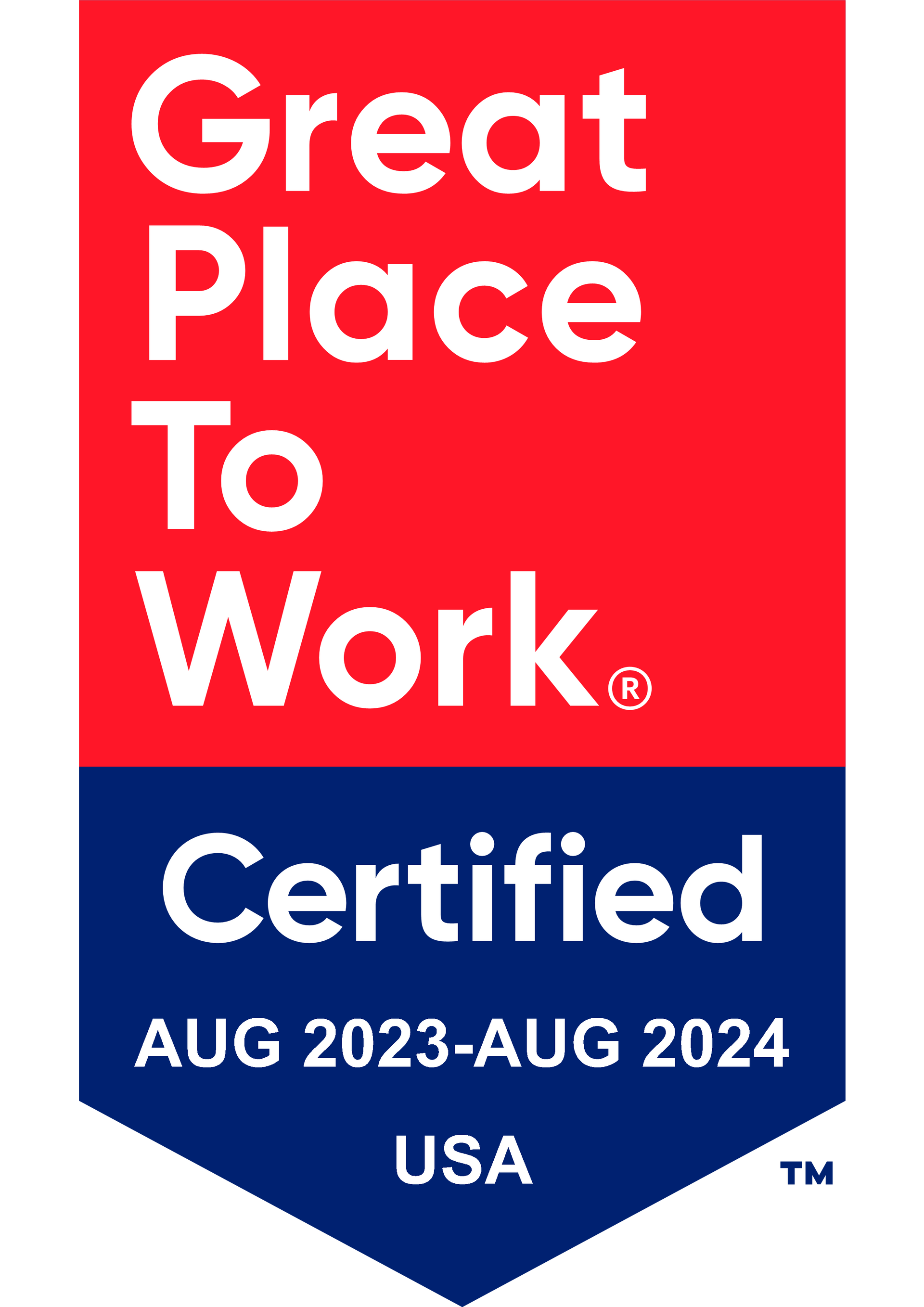Get in touch
408-366-8880
mymail@mailservice.com

The Importance of a Client-Focused Insurance Broker

Deciding on the right insurance plan for your organization, and especially for your employees, is a challenging task. That’s why so many business leaders take some of the burdens off their HR team’s backs and work with an insurance broker.
That process can be challenging and time-consuming as well, but once you find an insurance broker you can trust to introduce good plan ideas and find the best carriers and prices, you probably won’t have to look for someone new again for a long time.
One type of insurance broker organizations want to work with is one that is clearly client-focused. The problem is that insurance brokers will sometimes claim they are client-focused, but before the ink on the contract is dry, the truth becomes apparent that they either don’t know what being client-focused means, or they weren’t completely honest.
One important detail for business owners to keep in mind is that client-focused companies expressly work for the businesses seeking insurance and not for the insurance companies. Otherwise, there would be continuous conflicts of interests that would likely not serve anyone’s interests. But that detail should be made clear during your search process.
Let’s look closer at what it means to be a client-focused insurance broker, why it’s important, how you can identify one through strategic questions and observations, and how your client-focused benefits broker can help.
UNDERSTAND THAT AN INSURANCE BROKER HAS MULTIPLE CLIENTS AND MULTIPLE INTERESTS
You probably understand that any insurance broker you engage will have more clients outside of your business. That’s the goal of most businesses: to have and please multiple clients.
Having clarified that obvious aspect of insurance brokerage and business in general, service-based businesses need to ensure that they can and will attend to the needs of their clients at an agreed-upon level, regardless of their client roster. The broker should assess new client loads and how much their professionals can take on to serve all client needs.
It is essential to clarify availability with transparency, especially with new clients who might have greater needs than other clients.
BEST PRACTICES FOR MANAGING MULTIPLE CLIENTS
Smart business leaders don’t indiscriminately and haphazardly sign new clients on a whim. They create a strategic plan that helps guide them, letting them know when it is advantageous, wise, and safe to sign more clients.
Here are some things busy client-brokers do to manage existing clients while looking toward future engagements:
- They get and stay organized by using calendars and project management tools to track deliverables and assign tasks to team members. By doing this, they can see when they are on the verge of overloading their organization. This way, they always know where their human resources are going and how much more bandwidth they have.
- They assess the respective challenges to each client’s business. Some clients will be easy keepers, requiring only moderate interaction. However, others, like startups or those newly adding insurance coverage, might need additional assistance periodically.
- They aren’t afraid to say no if they can’t properly accommodate a new client’s needs. The best insurance brokerages with the brightest futures are willing to let a client go on to find the right firm if they know they can’t provide the service the client wants. It’s better to respectfully decline, wish them the best, and invite them to check-in at another time than giving them false promises and falling short.
- They aren’t afraid to admit they have fallen short. If an insurance broker becomes extremely busy with multiple clients after signing with them, things can become tricky. A client-focused firm, at least in spirit, will let the client know they had the best intentions but might need some extra patience.
WHAT DOES IT MEAN TO BE A CLIENT-FOCUSED INSURANCE BROKER?
In today’s ever-complex world of insurance, employers and employees need all the help possible in making sense of it, finding the right insurance strategy, choosing a plan, and bringing it all together.
An insurance broker offers their expertise in finding various insurance packages that serve all kinds of companies that employ various numbers of workers with specific employee needs. They also tend to be risk management concerns. These specialists have ready access, and connections meant to make the process faster and quicker for clients.
WHAT DO CLIENTS LOOK FOR IN AN INSURANCE BROKER?
According to a MetLife Study shared by Employee Benefit Advisor, “at least 81% of employers say an insurance agent or broker plays a crucial role when developing their benefit plans, and 75% say a benefits consultant or consulting firm assisted during their renewal period.”
Clients want an insurance broker or brokerage that will take on their more complex benefits projects to ensure employees have the best coverage the company can afford.
WHY IS IT IMPORTANT TO ENGAGE A CLIENT-FOCUSED INSURANCE BROKER?
First and foremost, you need an insurance broker who has your and your employees’ best interests in mind. If you ended up working with an insurance broker who served both employers and insurance companies, you would likely be on the losing end of that deal. Their focus would always be drawn in varied directions.
Additionally, once you find a strong collection of client-specific insurance brokers in your area, you need to know that they will work as hard for your company as they do for all their others.
QUESTIONS TO ASK INSURANCE BROKERS TO SEE IF THEY ARE CLIENT-FOCUSED
Once you have compiled some insurance brokerages in your area that are intended for business owners or have several brokers who work solely for businesses, it’s time to form some questions to help you determine whether they are client-focused and will work hard to find the best insurance available.
Here are some concrete questions to ask when searching for a client-focused insurance broker:
1. ARE YOU FAMILIAR WITH MY INDUSTRY?
It’s important to ask this question because your broker should at least have a passing knowledge of your industry, type of business, and what your employees do. It helps to know that they care enough to learn a little about your company to get a better idea of your unique needs.
2. WHAT SIZE COMPANY DO YOU USUALLY WORK WITH?
If your company has 50-500 employees and your prospective broker works with very small companies, they might not have the bandwidth to add your company to their roster. It’s worth a conversation because the leap might not be so great for them if you have between 50-100 employees. However, if it is significantly more than that, they might not have or want the responsibility of handling insurance needs for so many people.
3. ARE YOU LICENSED?
Whether you are interviewing an individual or a firm, anyone working on your account must have proper licensure. They might hold a broker-specific license or what is called a “producer license,” which allows them to work as brokers or agents.
4. CAN YOU HELP WITH COMPLIANCE MATTERS?
Most businesses want an insurance broker who can answer compliance questions. In many cases, it is the number one requirement that businesses have when hiring a broker. Given the past decade, trying to navigate the Affordable Care Act (ACA), employers have needed the expertise in this area to ensure compliance.
5. HOW MANY AGENTS DO YOU HAVE ON STAFF AVAILABLE FOR MY ACCOUNT?
You might have multiple considerations when hiring an insurance brokerage, so make sure they have the staffing to satisfy your needs. Ask whether you’ll deal with one broker or if you’ll work with different brokers at different times.
6. DOES YOUR BROKERAGE HAVE A NICHE?
Some firms deal only with employee benefits and general liability insurance while others also work with workers’ compensation and much more. Make sure your brokerage covers your needs and that they have enough brokerage professionals to respond to you as needed.
7. DO YOU OFFER TAILORED SERVICES?
With so many different types of insurance plans and policies available, you might need help determining what is best for your business. With tailored services, you can get the help you need to find the best one for your business.
8. DO YOU PROVIDE CONTINUOUS SERVICE?
Once you purchase your insurance, you will probably need ongoing services to keep your insurance in place and running smoothly. You’ll certainly need help when open enrollment comes back around. Further, it’s often helpful to reach out to brokers to apply for certain claims, especially if they are unusual and might require some loopholes you want to avoid.
9. DOES YOUR INSURANCE BROKERAGE FIRM RELY ON TECHNOLOGY?
While you don’t need a full menu of digital solutions, it’s important that your insurance broker can and will use anything to give you the best insurance options and rates. It’s great if they inform you that they use customer resource management (CRM) software to ensure that they are always on top of their clients’ needs.
10. DO YOU PUT EACH CLIENT’S NEEDS FIRST?
Finally, it’s vital to ask the most pressing question, and that’s whether the firm plans to remain responsive to your needs throughout the course of your engagement. Remind them that you have a duty to your employees and that you would like for them to share that philosophy while you work together.
DO YOU NEED HELP FINDING A CLIENT-FOCUSED INSURANCE BROKER?
If you need more help and ideas for finding the right client-focused insurance broker, our team at KBI Benefits can help.
Contact us to schedule a time to chat about what you are looking for in an insurance broker and how to find one that will work for your interests.
Services
Latest Thinking



